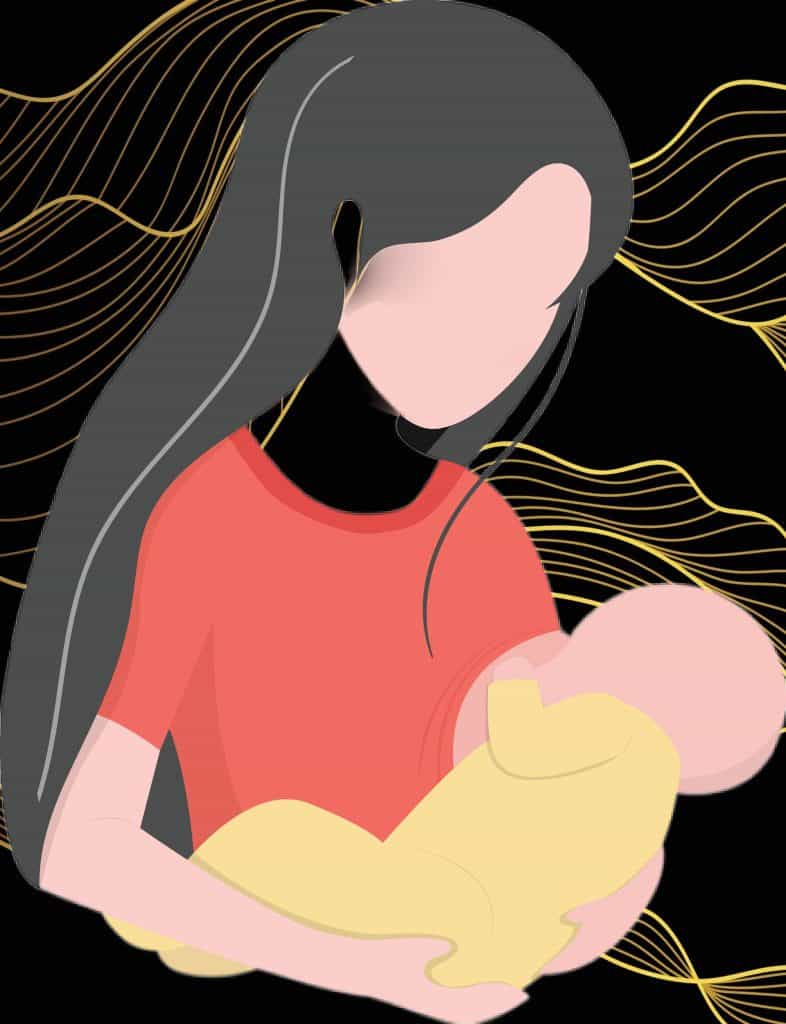
When you’ve got a little one on the way, the last thing you want is to wake up with the horrific pain that a migraine brings. Unfortunately, for lots of expectant mothers, this is a harsh reality.
Migraines during pregnancy, or even postpartum, can be incredibly debilitating, transforming what should be a beautiful journey into one that is overshadowed with discomfort.
But not many people know about the link between pregnancy and migraines – something we’ll dive into in this blog.
What is a Migraine?
Migraines are severe headaches that cause intense throbbing or pulsing pain, usually on one side of the head.
They are often accompanied by other symptoms such as nausea, vomiting, and sensitivity to light and sound.
Migraines can vary in intensity and duration, lasting from a few hours to several days.
Understanding these symptoms is crucial for pregnant women to identify and differentiate between a regular headache and a migraine.
Common Symptoms of Migraines
- Throbbing or Pulsing Pain: Typically felt on one side of the head.
- Nausea and Vomiting: A frequent companion to the intense headache.
- Sensitivity to Light and Sound: Many sufferers need to lie down in a dark, quiet room.
- Aura: Some experience visual disturbances like flashes of light or blind spots before the onset of a migraine.
Why Are Pregnant Women More Susceptible to Migraines?
Pregnancy is a time of significant physical and emotional change.
These changes can make pregnant women more susceptible to migraines. Here are some of the key reasons:
Hormonal Changes
One of the primary triggers of migraines during pregnancy is hormonal fluctuation.
The surge in hormones, particularly oestrogen, can significantly impact the neurological system, leading to migraines.
These hormonal fluctuations are most pronounced during the first trimester.
As the body adjusts to the increasing levels of hormones, the frequency and intensity of migraines can increase.
Increased Blood Volume
During pregnancy, a woman’s blood volume increases by 30-50% to support the growing baby.
While this is essential for providing nutrients and oxygen to the foetus, it can cause blood vessels to swell, leading to headaches and migraines.
The body’s circulatory system is under extra pressure, which can trigger migraine episodes.
Stress and Anxiety
The emotional changes and pressures of pregnancy can heighten stress levels, which are well-known migraine triggers.
The anticipation of becoming a parent, coupled with physical changes, can lead to increased anxiety.
This stress can exacerbate migraine symptoms, creating a vicious cycle of pain and worry.
Dietary Changes
Pregnancy cravings and dietary restrictions can sometimes lead to migraines, especially if essential nutrients are lacking.
Foods that are high in tyramine, such as aged cheeses, smoked fish, and certain processed meats, can trigger migraines.
Additionally, fluctuating blood sugar levels from irregular eating habits can contribute to headache onset.
Effects of Migraines on Pregnancy
Migraines can significantly affect your daily life and overall well-being during pregnancy.
They can cause severe pain, nausea, vomiting, and sensitivity to light and sound, making it challenging to perform everyday tasks and enjoy your pregnancy.
The impact of migraines can extend beyond physical discomfort, affecting emotional well-being and overall quality of life.
When Do Migraines Typically Occur?
Migraines are most common during the first trimester when hormonal changes are at their peak.
However, they can also occur throughout the pregnancy.
Many women find that migraines tend to subside during the second and third trimesters as hormone levels stabilise.
Understanding the timing and triggers can help in managing and potentially reducing the frequency of migraines.
At Focus Osteopathy, we are committed to providing compassionate, personalised care tailored to your specific needs.
If migraines are impacting your pregnancy, please don’t hesitate to reach out to us.
Our team is here to provide effective solutions, helping you enjoy a healthier, more comfortable pregnancy.
Your journey towards a pain-free pregnancy starts here.
How Osteopathy Can Help Your Pregnancy Migraines

Osteopathy offers a holistic approach to alleviating migraines during pregnancy, focusing on gentle, non-invasive techniques that can provide significant relief without medication.
Migraines can be particularly challenging during pregnancy due to hormonal changes, increased stress, and the body’s physical adaptations to support the growing baby. Osteopathic treatments aim to address these underlying issues by enhancing the body’s natural ability to heal and function optimally.
Through hands-on manipulation and specific osteopathic techniques, an osteopath can alleviate tension and improve circulation, which can reduce the frequency and intensity of migraines.
During pregnancy, the body undergoes various structural and hormonal changes that can contribute to migraines. Osteopaths use gentle manipulations to address these changes, improving alignment and relieving pressure on nerves and blood vessels.
Techniques such as cranial osteopathy can be particularly beneficial, as they focus on the subtle movements of the cranial bones and the release of tension in the head and neck.
This can lead to a significant reduction in migraine symptoms. Furthermore, osteopathy can help enhance overall well-being by promoting relaxation, reducing stress, and improving sleep, all of which are crucial for managing migraines during pregnancy.
By supporting the body’s natural balance and addressing the root causes of pain, osteopathy provides a safe and effective way to manage migraines and improve the quality of life for expectant mothers.
Talk to us. We're here to help.
More FREE Pregnancy Resources
Read Our Blog – How Osteopathy Can Help Your Postpartum Pain



